
https://idiazst.github.io/website/

I met with professor Mark van der Laan because I think his work is pretty incredible and it sometimes feels like a secret that only a few people know about, especially in industry.
1/
#CausalSky #StatSky #CausalInference

I met with professor Mark van der Laan because I think his work is pretty incredible and it sometimes feels like a secret that only a few people know about, especially in industry.
1/
#CausalSky #StatSky #CausalInference
www.tandfonline.com/doi/full/10....

www.tandfonline.com/doi/full/10....



"Longitudinal trimming and smooth trimming with flip and S-flip interventions"
Prelim draft: alecmcclean.github.io/files/LSTTEs...
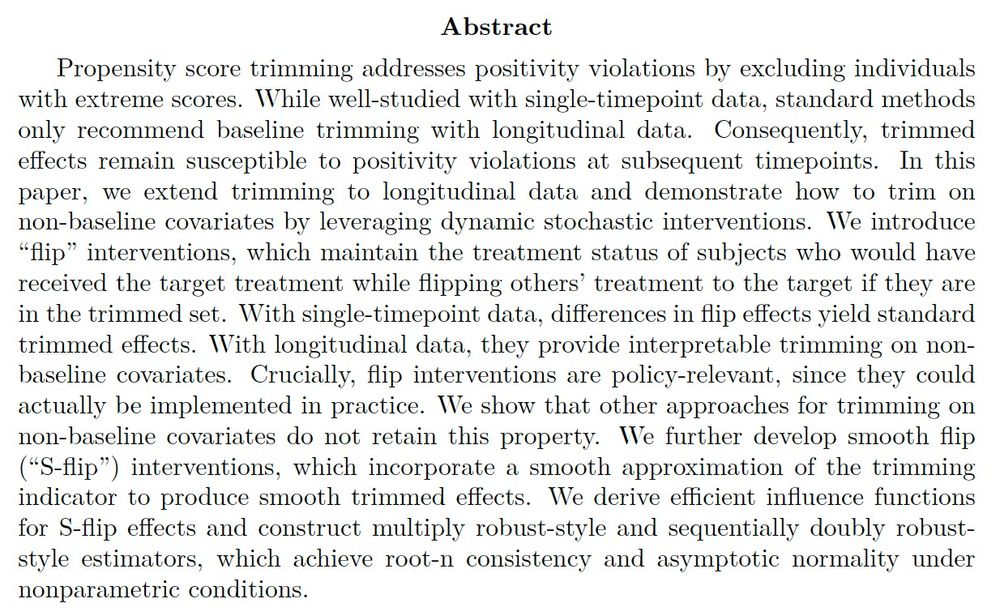
"Longitudinal trimming and smooth trimming with flip and S-flip interventions"
Prelim draft: alecmcclean.github.io/files/LSTTEs...
If you were taught to test for proportional hazards, talk to your teacher.
The proportional hazards assumption is implausible in most #randomized and #observational studies because the hazard ratios aren't expected to be constant during the follow-up. So "testing" is futile.
But there is more 👇
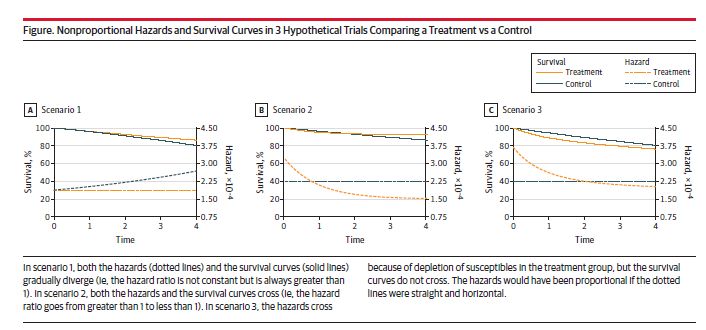
If you were taught to test for proportional hazards, talk to your teacher.
The proportional hazards assumption is implausible in most #randomized and #observational studies because the hazard ratios aren't expected to be constant during the follow-up. So "testing" is futile.
But there is more 👇
A short thread:
It amazes me how many crucial ideas underlying now-popular semiparametrics (aka doubly robust parameter/functional estimation / TMLE / double/debiased/orthogonal ML etc etc) were first proposed many decades ago.
I think this is widely under-appreciated!
A short thread:
It amazes me how many crucial ideas underlying now-popular semiparametrics (aka doubly robust parameter/functional estimation / TMLE / double/debiased/orthogonal ML etc etc) were first proposed many decades ago.
I think this is widely under-appreciated!

arxiv.org/abs/2501.04871
If you're not in the know, Riesz regression is a general tool to estimate things like propensity weights without actually having to know that they are propensity weights in the first place.

arxiv.org/abs/2501.04871
If you're not in the know, Riesz regression is a general tool to estimate things like propensity weights without actually having to know that they are propensity weights in the first place.
We've described the 3-year health impact of #COVID19 in Madrid, the EU region with the highest life expectancy.
If we can't describe, no causal inference can follow.
academic.oup.com/ofid/article...
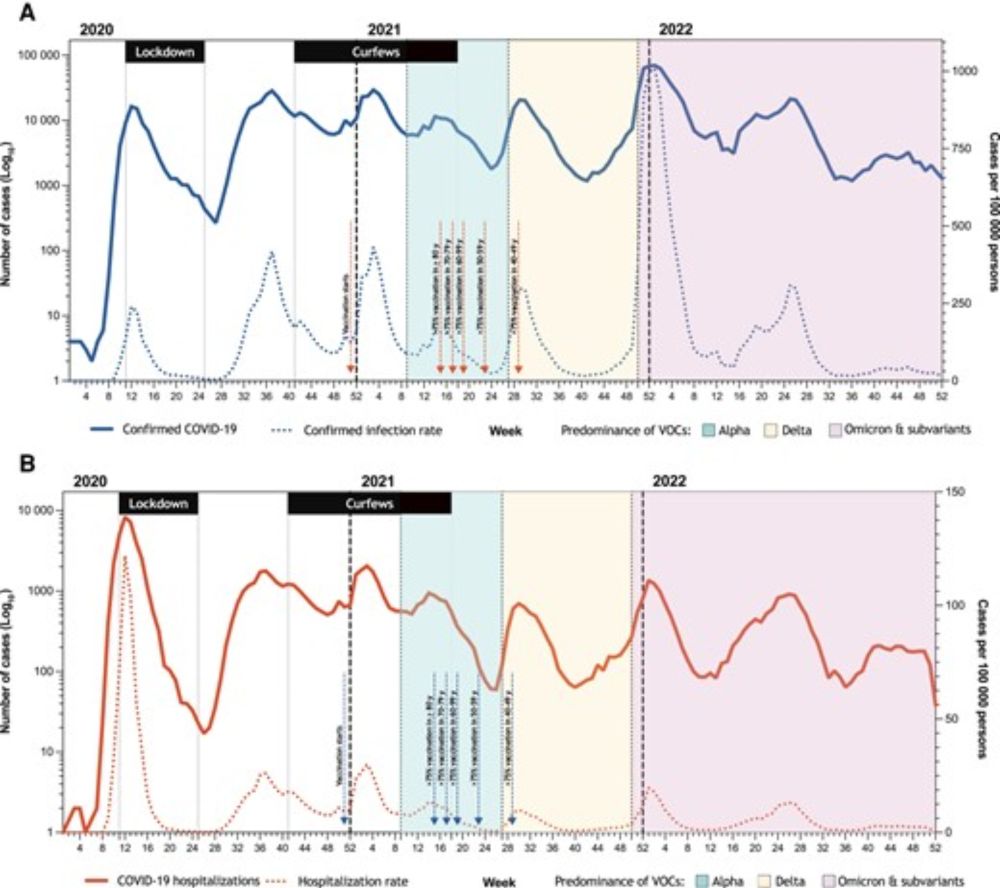
For instance Section 4.1 of arxiv.org/abs/2203.06469

We tackle the challenge of comparing multiple treatments when some subjects have zero prob. of receiving certain treatments. Eg, provider profiling: comparing hospitals (the “treatments”) for patient outcomes. Positivity violations are everywhere.


Led by amazing postdoc Alex Levis: www.awlevis.com/about/
We show causal effects of new "soft" interventions are less sensitive to unmeasured confounding
& study which effects are *least* sensitive to confounding -> makes new connections to optimal transport
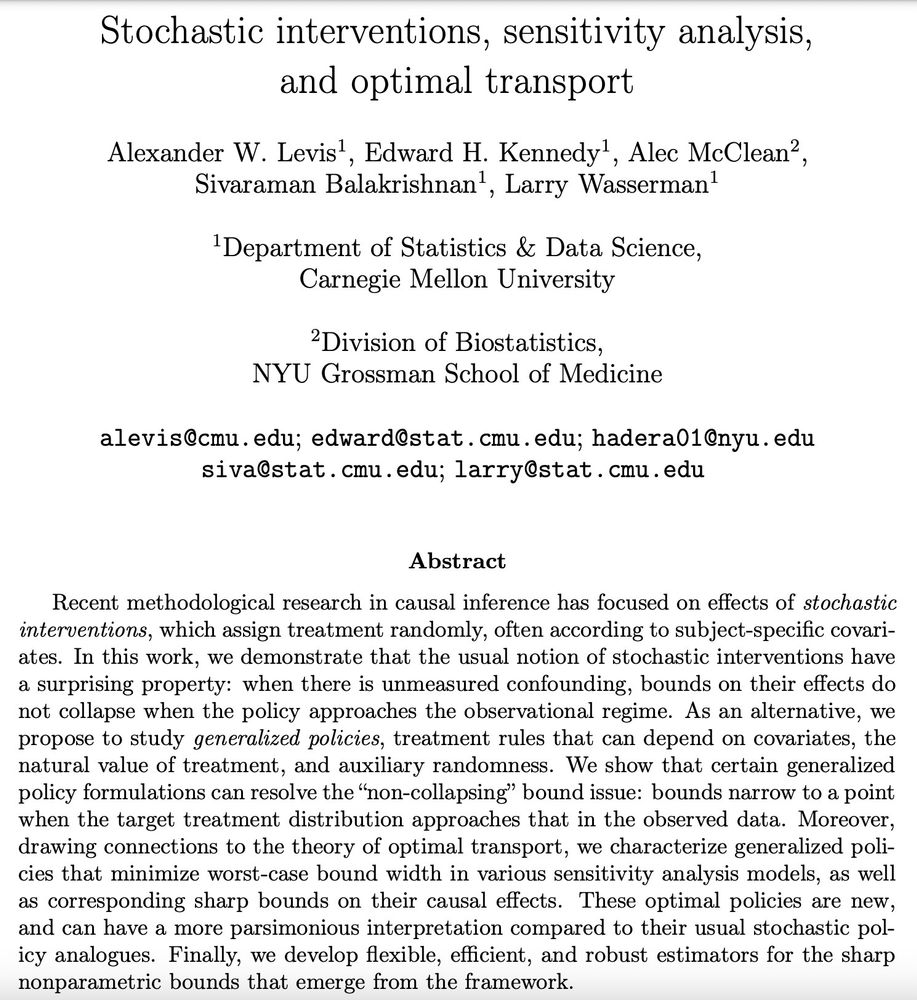
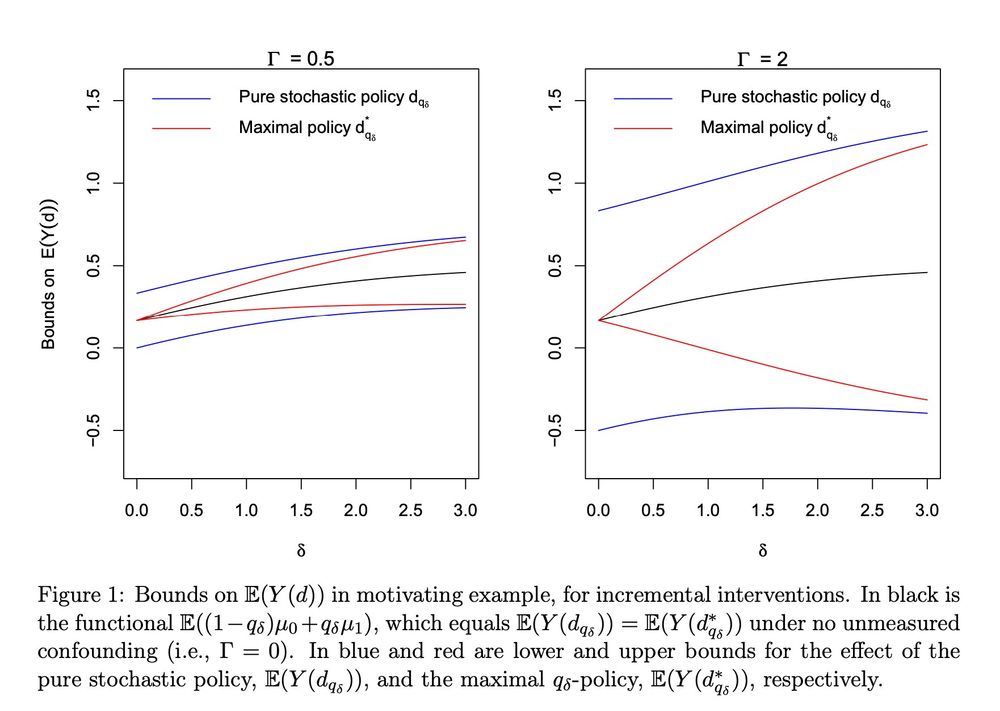
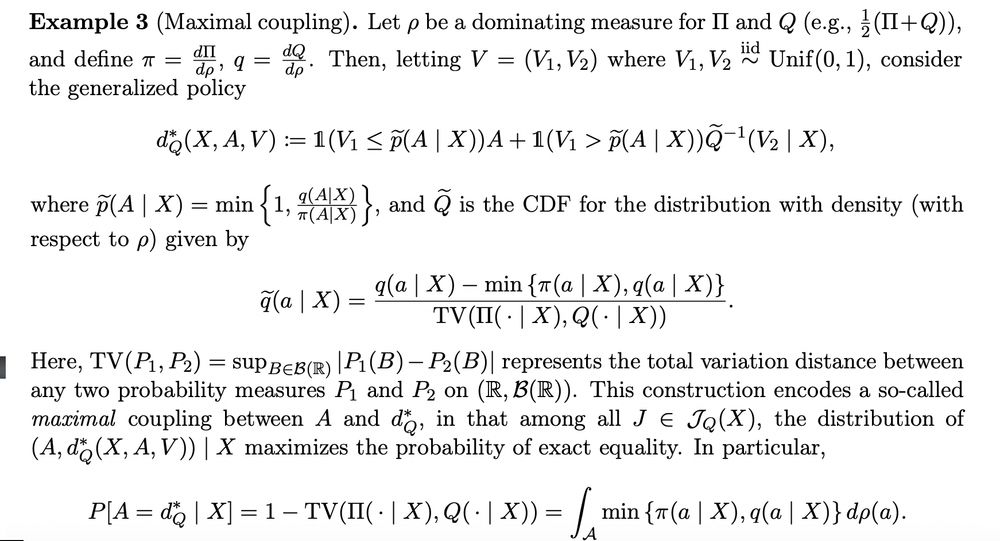
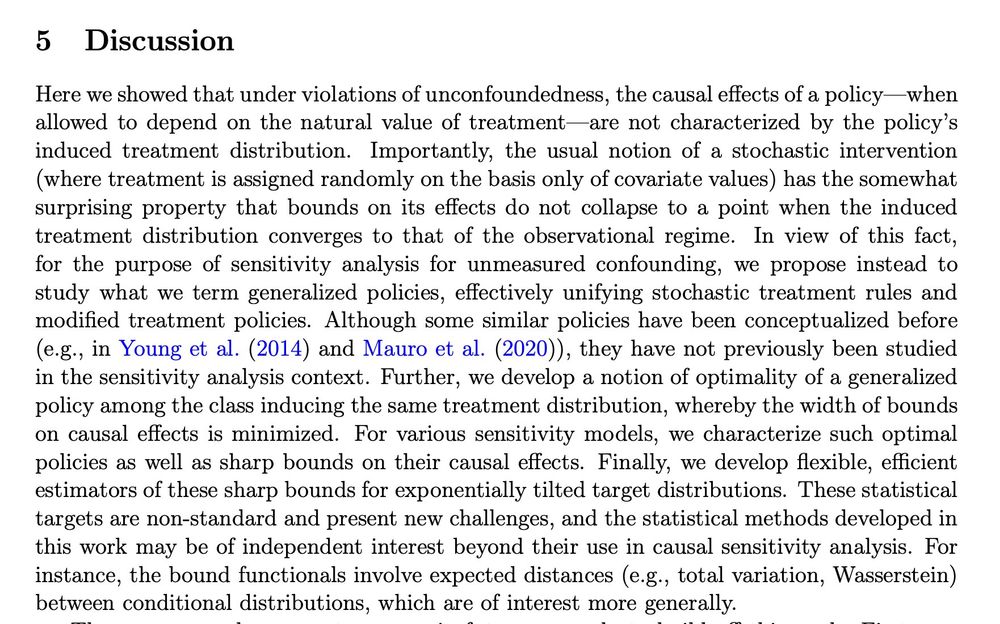
Led by amazing postdoc Alex Levis: www.awlevis.com/about/
We show causal effects of new "soft" interventions are less sensitive to unmeasured confounding
& study which effects are *least* sensitive to confounding -> makes new connections to optimal transport




